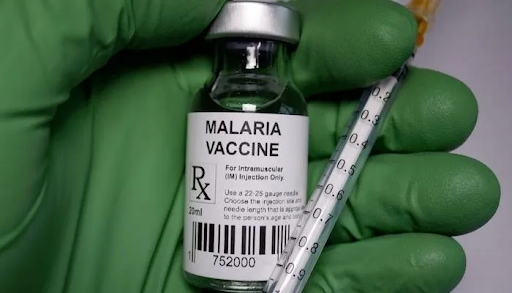Twelve countries across different regions in Africa, excluding Nigeria, will receive 18 million doses of the first-ever malaria vaccine over the next two years.
This was revealed in a joint press release issued by the trio of Gavi, the Vaccine Alliance, United Nations Children’s Fund (UNICEF) and the World Health Organisation (WHO).
Thabani Maphosa, Managing Director of Country Programmes Delivery at Gavi, the Vaccine Alliance said: “This vaccine has the potential to be very impactful in the fight against malaria, and when broadly deployed alongside other interventions, it can prevent tens of thousands of future deaths every year”
“While we work with manufacturers to help ramp up supply, we need to make sure the doses that we do have are used as effectively as possible, which means applying all the learnings from our pilot programmes as we broaden out to a new total of 12 countries”, Maphosa added.
The rollout is a critical step forward in the fight against one of the leading causes of death on the continent.
The allocations have been determined through the application of the principles outlined in the Framework for allocation of limited malaria vaccine supply that prioritizes those doses to areas of highest need, where the risk of malaria illness and death among children are highest.
Since 2019, Ghana, Kenya and Malawi have been delivering the malaria vaccine through the Malaria Vaccine Implementation Programme (MVIP), coordinated by WHO and funded by Gavi, the Vaccine Alliance, the Global Fund to Fight AIDS, Tuberculosis and Malaria, and Unitaid.
The RTS,S/AS01 vaccine has been administered to more than 1.7 million children in Ghana, Kenya and Malawi since 2019 and has been shown to be safe and effective, resulting in both a substantial reduction in severe malaria and a fall in child deaths. At least 28 African countries have expressed interest in receiving the malaria vaccine.
In addition to Ghana, Kenya and Malawi, the initial 18 million dose allocation will enable nine more countries, including Benin, Burkina Faso, Burundi, Cameroon, the Democratic Republic of the Congo, Liberia, Niger, Sierra Leone and Uganda, to introduce the vaccine into their routine immunization programmes for the first time. This allocation round makes use of the supply of vaccine doses available to Gavi, Vaccine Alliance via UNICEF. The first doses of the vaccine are expected to arrive in countries during the last quarter of 2023, with countries starting to roll them out by early 2024.
- In response to high demand for the first-ever malaria vaccine, 12 countries in Africa will be allocated a total of 18 million doses of RTS,S/AS01 for the 2023–2025 period
- Malaria Vaccine Implementation Programme countries Ghana, Kenya and Malawi will receive doses to continue vaccinations in pilot areas
- Allocations were also made for new introductions in Benin, Burkina Faso, Burundi, Cameroon, Democratic Republic of the Congo, Liberia, Niger, Sierra Leone and Uganda
Malaria remains one of Africa’s deadliest diseases, killing nearly half a million children under the age of 5, and accounting for approximately 95% of global malaria cases and 96% of deaths in 2021.
“Nearly every minute, a child under 5 years old dies of malaria,” said UNICEF Associate Director of Immunization Ephrem T Lemango. “For a long time, these deaths have been preventable and treatable; but the roll-out of this vaccine will give children, especially in Africa, an even better chance at surviving. As supply increases, we hope even more children can benefit from this life-saving advancement.”
“The malaria vaccine is a breakthrough to improve child health and child survival; and families and communities, rightly, want this vaccine for their children. This first allocation of malaria vaccine doses is prioritised for children at highest risk of dying of malaria,” said Dr Kate O’Brien, WHO Director of Immunization, Vaccines and Biologicals.
“The high demand for the vaccine and the strong reach of childhood immunisation will increase equity in access to malaria prevention and save many young lives. We will work tirelessly to increase supply until all children at risk have access.”
Given the limited supply in the first years of the roll-out of this new vaccine, in 2022, WHO convened expert advisors, primarily from Africa – where the burden of malaria is greatest – to support the development of a Framework for the allocation of limited malaria vaccine supply, to guide where initially limited doses would be allocated. The Framework is based on ethical principles on a foundation of solidarity, and it proposes that vaccine allocation begin in the areas of greatest need.
The Framework implementation group that applied the framework principles included representatives of the Africa Centres for Disease Control and Prevention (Africa CDC), UNICEF, WHO and the Gavi Secretariat, as well as representatives of civil society and independent advisors. The group’s recommendations were reviewed and endorsed by the Senior Leadership Endorsement Group of Gavi, WHO and UNICEF.
Annual global demand for malaria vaccines is estimated at 40–60 million doses by 2026 alone, growing to 80–100 million doses each year by 2030. In addition to the RTS,S/AS01 vaccine, developed and produced by GSK, and in the future supplied by Bharat Biotech, it is expected that a second vaccine, R21/Matrix-M, developed by Oxford University and manufactured by Serum Institute of India (SII), could also be prequalified by WHO soon. Gavi has recently outlined its roadmap to support increasing supply to meet demand.
Source: WHO
Do you want to share your impact stories or pitch the coverage of your CSR event to us? E-mail: editor@impactwatch.net or *Phone +234-806-795-0250 (Whatsapp &Text)





